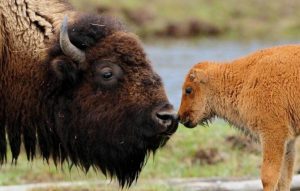 U.S. Senator Tammy Baldwin announced today that a provision in the National Defense Authorization Act will transfer 1,553 acres of former Badger Army Ammunition Plant lands to the Ho-Chunk Nation for prairie and grazing. The bill was passed by the U.S. House of Representatives yesterday. The land transfer will be final with the anticipated approval of the U.S. Senate next week and signature of the President thereafter.
U.S. Senator Tammy Baldwin announced today that a provision in the National Defense Authorization Act will transfer 1,553 acres of former Badger Army Ammunition Plant lands to the Ho-Chunk Nation for prairie and grazing. The bill was passed by the U.S. House of Representatives yesterday. The land transfer will be final with the anticipated approval of the U.S. Senate next week and signature of the President thereafter.
“I have been working on this since I first entered Congress, so I take great pride in bringing people together, giving the community a voice, and getting the job done,” said Senator Baldwin.
The property will be held in trust by the Secretary of the Interior for the benefit of the tribe and will be a part of the reservation of the Ho-Chunk Nation. The transfer provisions will allow the land to be put to its designated reuse for prairie restoration and bison grazing, and contain language prohibiting any gaming activities.
“This land transfer has been held up in bureaucratic proceedings for far too long. Senator Baldwin’s legislative provision will finally allow the land to be transferred and for our People to preserve and protect this special place,” said Ho-Chunk Nation President Jon Greendeer.
The lands lie within the heart of the Ho-Chunk Nation’s aboriginal territory including villages located within present-day Sauk County and along the Wisconsin River where Badger is located.
“It is not often that Native nations have their ancestral lands returned. This land demonstrates the power of collaboration between tribal nations and the federal government,” said Representative Susan Waukon, Ho-Chunk Nation – District 1. “We are truly humbled and cannot express our gratitude enough for Senator Baldwin’s commitment and hard work over the years.”
“The Ho-Chunk Nation’s formal request for land at Badger emphasizes the protection of natural resources and wildlife habitat through restoration of significant portions of property to its original prairie,” said Laura Olah, Executive Director of CSWAB, a local organization that has actively supported the Nation’s interest in the property.
In the fall of 1998, CSWAB formally endorsed the Nation’s sustainable land use plan – a proposal that would allow the land to heal from the environmental damage caused by more than 50 years of munitions production. More than 130 individuals and organizations from across the country co-signed CSWAB’s letter of support which was later submitted as an attachment to the Ho-Chunk Nation’s federal application.
“From the beginning, the Ho-Chunk Nation has been a steadfast partner in protecting the environmental and ecological resources at Badger. The Nation has testified at public hearings, rejected contrary land use proposals, and passed resolutions supporting the highest degree of cleanup,” Olah said. “Together we built a community when others tried to push us apart.”

